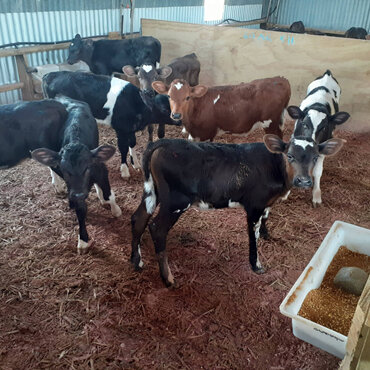With calving now well underway you most likely will have plans in action to get through calving successfully with good animal health and be well set up for mating and peak milk production. With things in full swing, what checks do you have in place to ensure your plans are working and allow regular fine-tuning?
It can be easy to assume that all is going well and wait for problems to start occurring before contacting your vet for help. However, there are a few simple checks that can be done early on to ensure things are going to plan and allow any adjustments to be made before the problems start and prevent the flow-on effects.
Below is a quick summary of early season checks for animal health:
- Transition management and metabolic disease prevention – blood tests of springers, colostrum cows, and milkers to check supplementation of magnesium, calcium, and energy is adequate.
- Herd diet calculations and spring rotation planner checks – alongside pasture walks, pasture samples, and assessment of cow production and cow condition; feed calculators and feed budgets can be checked regularly and adjusted as conditions change to ensure targets are met.
- Mastitis treatment and cell count monitoring – milk samples from cows prior to treatment for mastitis can be checked to determine the bug present and how responsive to different antibiotic choices the bug is likely to be. This can then allow changes to preventative measures and ensure that the best antibiotic choice for your farm is being used. Once the first herd test for the season is completed, this can be used to help assess whether cows have developed new infections and whether cows infected last season have cured over the dry period and so assist culling decisions.
- Metrichecking – to check for uterus infections after calving. Ideally, these would be done in two weekly batches of cows calved at least two weeks to allow early treatment and recovery before mating.
- Calf disease prevention – blood samples can be taken from 1 to 10-day-old calves to check whether they have received enough colostrum.
With all your careful planning in place and checks set up, hopefully, you will be set up for a disease-free spring. But do remember we are here to help. Contact your veterinarian to discuss how they can help with the checks listed above or if problems do start to occur – the sooner the causes are identified, and prevention put in place the smaller the overall impact.
Wishing you all a quick and smooth calving!
Dr Ilyse Jennens – BVSc (Dist) MANZCVS




